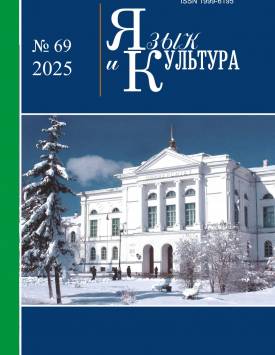Integration of artificial intelligence technologies in language and methodological pre-service teachers’ training
Every day Artificial Intelligence (AI) technologies are more deeply integrated into education in general and into the process of a foreign language teaching in particular. Methodologists are developing language-specific methods of teaching linguistic university students foreign language aspects, types of speech activities, culture and translation based on specific AI tools. Most of these studies have a narrow focus and are aimed at solving individual and sometimes discrete pedagogical tasks. Such integration of AI into the educational process allows us to create additional conditions for extracurricular language practice for students and contributes to the further development of their foreign language communicative competence in all the diversity of its components. At the same time, the majority of methodological studies have a narrow focus and are oriented towards solving individual and sometimes discrete educational problems related to the development of specific speech skills or the formation of lexical, grammatical or phonetic speech skills of students. At the present stage, the language teaching potential of AI technologies allows to systematically consider the issue of integrating AI into the process of language and methodological pre-service teachers' training, which has not yet been the subject of a separate study. The aim of the paper is to develop a structural model for the integration of AI technologies in language and methodological pre-service teachers' training. The model proposed by the authors for the integration of AI technologies in language and methodological pre-service teachers' training consists of five blocks: linguistic disciplines, narrow professional disciplines, methodological disciplines, pedagogical practice and research work. Within each block there are sub-blocks aimed at solving specific pedagogical/research tasks. The authors show which AI tools and tasks can be used in the context of teaching the disciplines from each block. The methodological content of the blocks is based on the typology of feedback from generative AI as applied to teaching a foreign language, including educational-social, information-reference, methodological, analytical, evaluative and conditionally creative types. The methodological content of the blocks is based on the typology of feedback from generative AI in relation to foreign language teaching. The research is based on systematic and expert approaches using theoretical (comparative, component and complex analysis of AI tools, classification, synthesis, generalisation, modelling) and empirical (observations and interviews with teachers and students) research methods. The research materials included scientific articles (Article and Review) published in academic j ournals indexed in the Scopus and Web of Science databases (Q1 and Q2), as well as Russian academic journals from the list of the Higher Attestation Commission of the Russian Federation on pedagogical sciences (С1 and С2). The subject of the research in the works used was the development of practical methods for teaching a foreign language (types of speech activity and aspects of language) using specific artificial intelligence tools. The authors declare no conflicts of interests.
Keywords
artificial intelligence, pre-service teacher training, linguistic university, artificial intelligence integration in educationAuthors
| Name | Organization | |
| Sysoyev Pavel V. | Derzhavin Tambov State University; Moscow Pedagogical State University | psysoyev@yandex.ru |
| Evstigneev Maxim N. | Moscow Pedagogical State University | maximevstigneev@bk.ru |
References

Integration of artificial intelligence technologies in language and methodological pre-service teachers’ training | Yazyk i Kultura – Language and Culture. 2025. № 69. DOI: 10.17223/19996195/69/10
